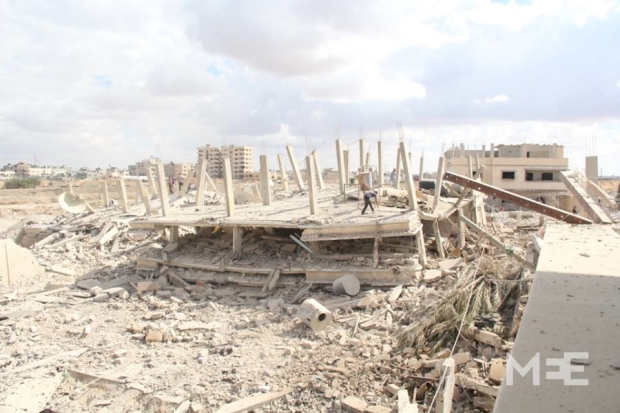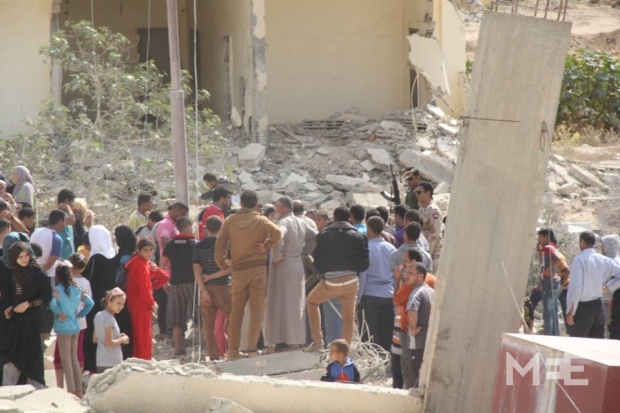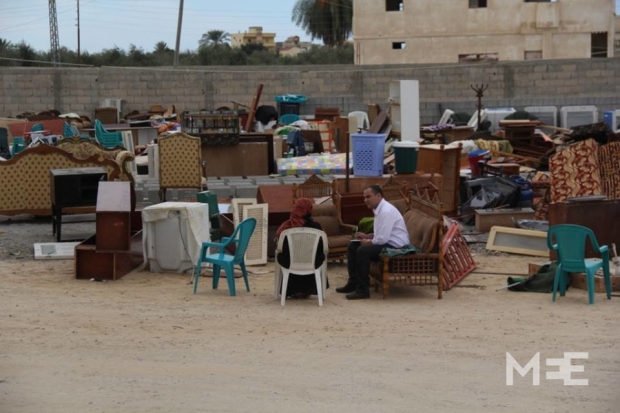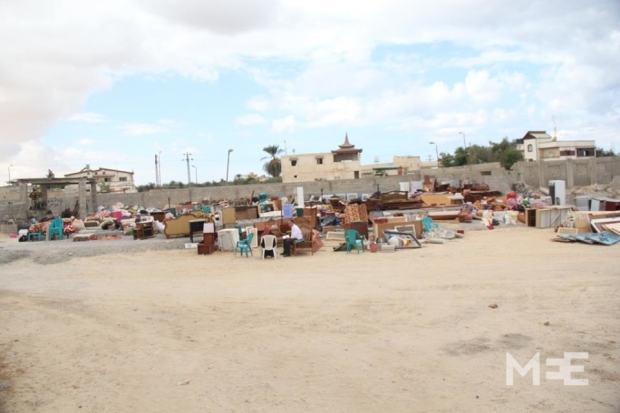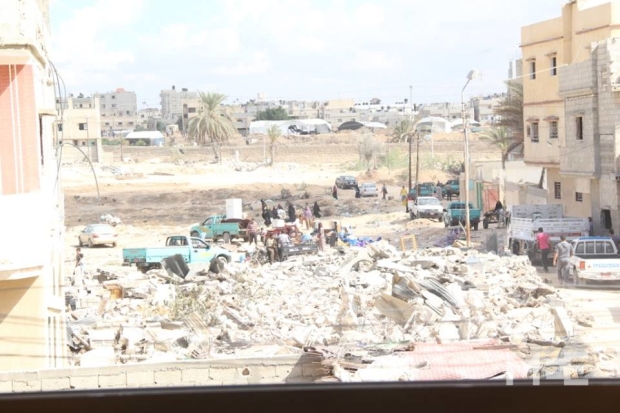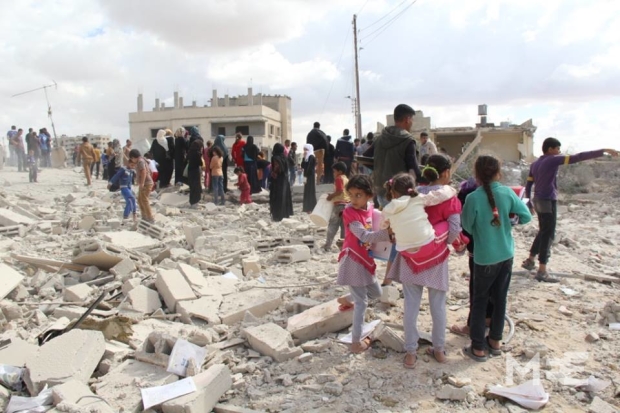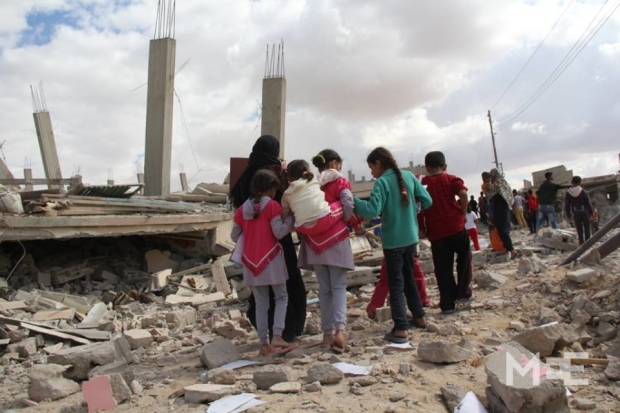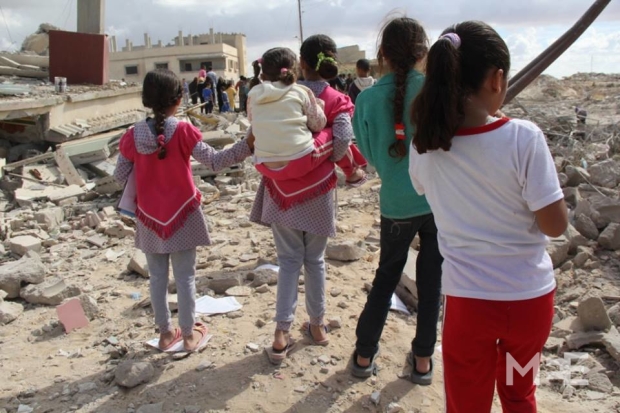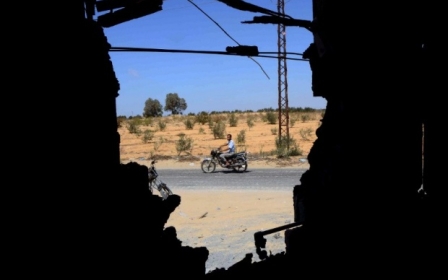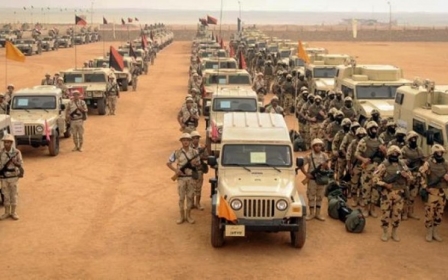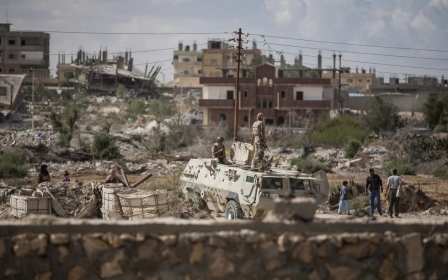In Egypt's Rafah, residents question the logic of demolitions
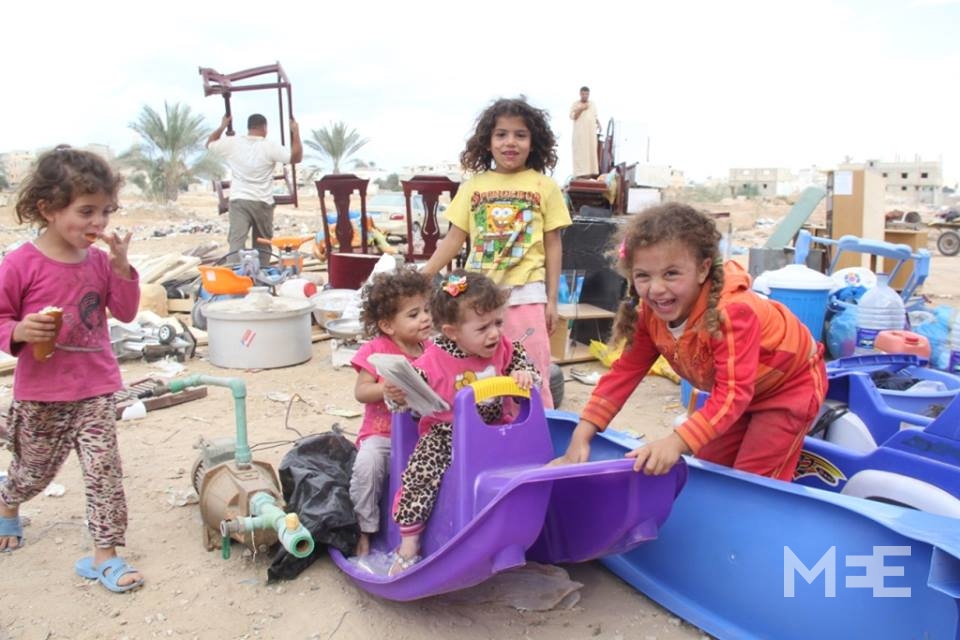
Much of what remains is rubble and people’s memories as you drive along Rafah’s border area, where Gaza and Israel are only a few metres away.
It came in response to the killing of 31 soldiers in Arish, North Sinai’s capital city, on 24 October. The army has accused militants along the Rafah-Gaza border of using tunnels underneath or near people’s homes to smuggle weapons that they then use against the Egyptian state.
For many ordinary people the collateral damage of displacing people and demolishing homes is a high price to pay.
“This is collective punishment,” said Shaimaa Musallam, a lawyer from Rafah. For Musallam, a 5 kilometre buffer zone would mean the loss of her father and relative’s lands.
“There’s no amount of compensation that could ever be enough for this. No financial compensation can bring you back your home,” she told Middle East Eye.
The army is offering the over 1,000 families affected by displacement an initial payment of 300 Egyptian pounds ($41.5) per month for three months’ rent. Many have said this is not enough.
In Arish, some landlords have more than doubled the price of rent to 1,000 Egyptian pounds ($139.84) per month due to high demand, residents said.
The average per-capita income in North Sinai in 2007-2008 was 8,884 Egyptian pounds ($1,444), 30 percent less than South Sinai and below the national average of 10,246 pounds ($1,432.98), according to the Egypt Human Development Report 2010.
North Sinai’s towns of Rafah, Sheikh Zuwayed and El Arish are home to 40,000 Palestinians, according to Chatham House. Goods worth as much as $700 million, some prohibited by Israel, used to pass through the tunnels annually, according to the International Crisis Group.
Rafah’s residents have mixed feelings about the army’s evacuation and demolition orders with some seeing it as a necessary means to crackdown on militancy, while others point out that attacks have continued.
“Displacing people is a double-edged sword,” Mohamed Ishta, a resident of the Rafah border area, said. “The positive side is cracking down on terrorism, but the economic consequences will be dire.”
“Where will we go? Who will provide for our living needs,” Ishta asked. “We will need new schools, hospitals, jobs, markets, and services. All of this while the government is suffering economically, in addition to the danger of leaving Sinai like a corpse, which is what the Zionist enemy wants.”
For Musallam, the army’s buffer zone strategy is a failed one.
“For over a year now the army has been trying to combat these militants, and still the attacks have continued, even until yesterday,” she said.
On 4 November, an explosion went off by the governorate’s headquarters in Arish caused by two mortar shells. No injuries were reported.
“This is despite an ongoing curfew from 5pm to 7am,” Musallam said. “What’s wrong with the government’s strategy? I don’t know. But the demolitions are illogical. Attacks are still happening.”
New MEE newsletter: Jerusalem Dispatch
Sign up to get the latest insights and analysis on Israel-Palestine, alongside Turkey Unpacked and other MEE newsletters
Middle East Eye delivers independent and unrivalled coverage and analysis of the Middle East, North Africa and beyond. To learn more about republishing this content and the associated fees, please fill out this form. More about MEE can be found here.


